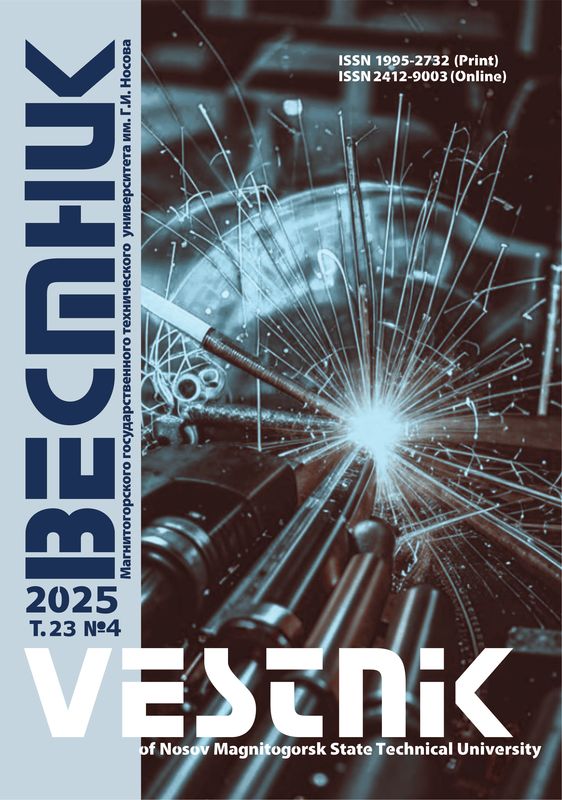DOI: 10.18503/1995-2732-2023-21-4-105-116
Abstract
Problem Statement (Relevance). It is typical of quality management system (QMS) processes to comply with both general requirements of standards ISO 9000 and the requirements set for a specific process. The current level of production development is characterized by widespread occurrence and application of digital technologies. In view of this, it is relevant to determine how digital technologies may be used for compliance of QMS processes with ISO standards. Objective and Methods Applied. The paper studies a system approach applied to key provisions of quality management in digital twins of QMS processes. The system approach contributes to identifying basic aspects of studying the digital twin of a QMS process to implement in the digital twin of the QMS process both process control and process improvement tasks. Regarding recommendations for developing the digital twin of the QMS process, it is required to factor into variability of physical processes and apply the PDSA cycle to implement a scientific approach to improvements. Results. The digital twin of the QMS process is proposed to be used as a tool for complying with a core principle of quality management, namely “continual improvement”. The authors developed fundamental provisions, being mandatory for all the QMS processes and satisfying the requirements of ISO 9000 for QMS processes. Practical Relevance. Simulation modeling used as a basis for studying behavior of the process contributes to lower expenses for testing process improvements because testing is attributed to a simulation model, not an actual process.
Keywords
QMS process, digital twin, QMS digitalization, PDSA cycle, process variability, process control
For citation
Zaporozhtsev A.V., Khazova Ver.I., Khazova Vik.I. Key Aspects of Creating a Digital Twin of the Quality Management System Process. Vestnik Magnitogorskogo Gosudarstvennogo Tekhnicheskogo Universiteta im. G.I. Nosova [Vestnik of Nosov Magnitogorsk State Technical University]. 2023, vol. 21, no. 4, pp. 105-116. https://doi.org/10.18503/1995-2732-2023-21-4-105-116
1. Grieves M., Vickers J. Digital twin: Mitigating unpredictable, undesirable emergent behavior in complex systems. Transdisciplinary perspectives on complex systems: New findings and approaches. Springer International Publishing, 2017, pp. 85-113. DOI: 10.1007/ 978-3-319-38756-7_4
2. Bao Jinsong, Dongsheng Guo, Jie Li, Jie Zhang. The modelling and operations for the digital twin in the context of manufacturing. Enterprise Information Systems. 2018;13(4):534-556. DOI: 10.1080/17517575. 2018.1526324
3. Herkes M.C., Oversluizen G. Using a system approach to model a process digital twin. IFAC-PapersOnLine. 2022;10(55):1906-1911. DOI: 10.1016/j.ifacol.2022. 09.677
4. Aditya Akundi, Viviana Lopez. A conceptual model-based systems engineering (MBSE) approach to develop digital twins. IEEE International Systems Conference (SysCon). Montreal, QC, Canada, 2022, pp. 1-5. DOI: 10.1109/SysCon53536.2022.9773869
5. State Standard GOST R ISO 9001-2015. Quality Management Systems. Requirements. Moscow: Standardinform, 2020, 32 p. (In Russ.)
6. Carvalho A., Sampaio P., Rebentisch E., Oehmen J. Technology and quality management: a review of concepts and opportunities in the digital transformation. International Conference on Quality Engineering and Management 2020. Braga, Portugal, 2020, pp. 698-714.
7. State Standard GOST R ISO 9000-2015. Quality Management Systems. Fundamentals and vocabulary. Moscow: Standardinform, 2018, 53 p. (In Russ.)
8. Walter A.Sh. Economic control of quality of manufactured product. American Society for Quality Control, Milwaukee, Wisconsin, 1980, 501 p.
9. Deming W.E. Vykhod iz krizisa: Novaya paradigma upravleniya lyudmi, sistemami i protsessami [Out of the crisis: A new paradigm of managing people, systems and processes]. Moscow: Alpina Publisher, 2014, 620 p. (In Russ.)
10. Wheeler D.J., Chambers D.S. Statisticheskoe upravlenie protsessami: Optimizatsiya biznesa s ispolzovaniem kontrolnykh kart Shukharta [Understanding statistical process control]. Moscow: Alpina Publisher, 2020, 410 p. (In Russ.)
11. Keshelava A.V., Haet I.L. The subject of the digital economy and the role of digital tools. Available at: https://spkurdyumov.ru/%20digital_economy/predmet-cifrovoj-ekonomiki-i-rol-cifrovyx-instrumentov/ (Accessed on May 15, 2023).
12. Boschert S., Rosen R. Digital twin – The simulation aspect. Mechatronic Futures, 2016, pp. 59-74. DOI: 10.1007/978-3-319-32156-1_5
13. Ruey-Shiang Guh. Integrating artificial intelligence into on-line statistical process control. Quality and Reliability Engineering. 2003;19(1):1-20. DOI: 10.1002/qre.510
14. Adnan Hassan. An improved scheme for online recognition of control chart patterns. International Journal of Computer Aided Engineering and Technology. 2011;3(3):309-321. DOI: 10.1504/IJCAET.2011. 040050
15. George M.L., Maxey J., Rowlands D., Price M. The lean Six Sigma pocket toolbook: A quick reference guide to nearly 100 tools for improving process quality, speed, and complexity. New York: McGraw-Hill, 2005, 282 p.
16. Skulsky D.V., Shurshev V.F., Shikulsky M.I., Gairabekova T.I. Management of business processes in municipalities by using artificial intelligence. Vestnik Astrakhanskogo gosudarstvennogo tekhnicheskogo universiteta [Vestnik of Astrakhan State Technical University]. 2022;(3):71-79. (In Russ.) DOI: 10.24143/ 2072-9502-2022-3-71-79












